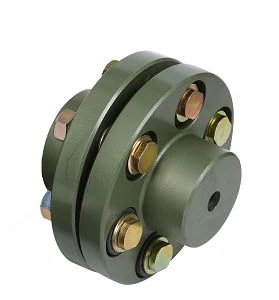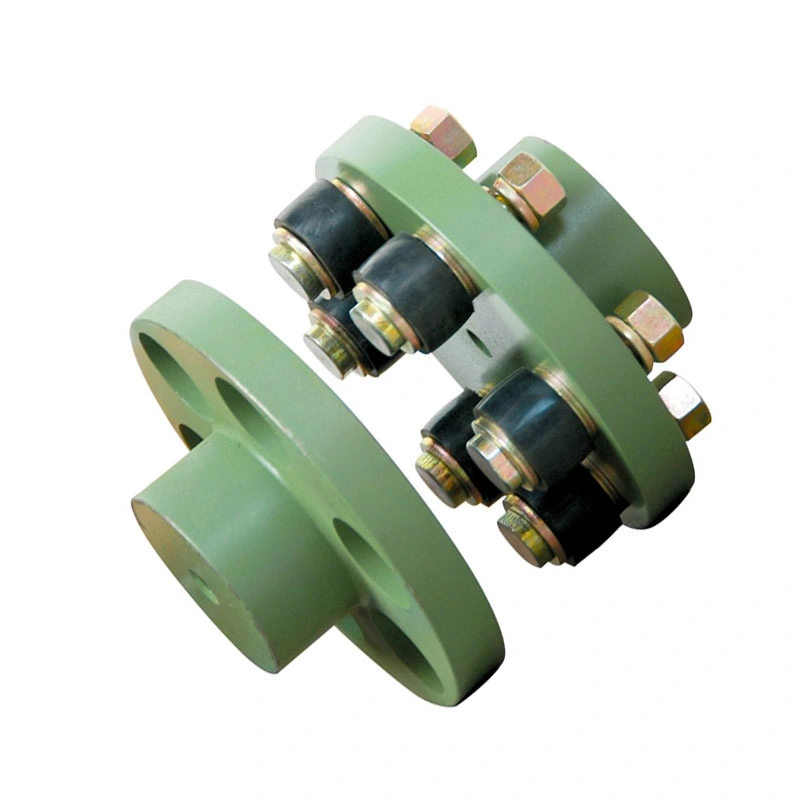Product Description
Product Description
BOMAG Vibration Coupling
Description: The BOMAG vibration coupling is a vital component designed to optimize the performance and reliability of road construction machinery. Engineered with precision and crafted from high-quality materials, this coupling serves as an essential link in the compaction process, effectively dampening vibrations and ensuring smooth operation in demanding construction environments.
| Material | Size | Color | Weight | Operating Temperature | Suitable Models |
| Rubber, Polyurethane, Steel, Composite Materials | Different Sizes | Green | -20°C (-4°F) to 50°C (122°F) |
|
Key Features:
Vibration Dampening: The BOMAG vibration coupling is expertly engineered to absorb and dissipate vibrations generated during the compaction process, minimizing operator fatigue and improving overall machine performance.
Enhanced Durability: Constructed from premium-grade materials, including rubber or polyurethane, this coupling is built to withstand the rigors of heavy-duty construction work, ensuring long-lasting durability and reliable operation even in the most challenging conditions.
Compatibility: Designed to seamlessly integrate with BOMAG road construction machinery, the vibration coupling is available in various sizes and configurations to ensure compatibility with different models, facilitating easy installation and maintenance.
Noise Reduction: By isolating vibrations and reducing machine resonance, the BOMAG vibration coupling helps minimize noise levels, creating a quieter working environment for operators and bystanders.
Improved Operator Comfort: With its ability to dampen vibrations and reduce machine-induced fatigue, the vibration coupling enhances operator comfort and productivity, allowing for extended periods of operation with reduced strain.
Maintenance Efficiency: Engineered for reliability and ease of maintenance, the BOMAG vibration coupling requires minimal upkeep, contributing to lower maintenance costs and downtime for road construction equipment.
Applications:
Road construction compactors
Asphalt rollers
Soil compactors
Tandem rollers
Vibratory rollers
The suitability of a BOMAG vibration coupling for a particular model of road construction machinery depends on various factors, including the specifications of the machinery and the specific requirements of the application. However, BOMAG vibration couplings are typically designed to be compatible with a wide range of BOMAG road construction equipment, including:
Asphalt Rollers: BOMAG manufactures a variety of asphalt rollers, including tandem rollers, combination rollers, and pneumatic tire rollers. Vibration couplings designed for asphalt rollers are optimized to withstand the high-frequency vibrations generated during asphalt compaction.
Soil Compactors: BOMAG soil compactors are used for compacting various types of soil and aggregates in road construction and earthwork projects. Vibration couplings for soil compactors are engineered to provide effective vibration dampening while withstanding the heavy loads and harsh operating conditions encountered in soil compaction applications.
Tandem Rollers: Tandem rollers are versatile machines used for compacting asphalt, soil, and aggregates in road construction and other civil engineering projects. BOMAG offers a range of tandem rollers equipped with vibration couplings designed to deliver smooth and efficient compaction performance.
Vibratory Rollers: Vibratory rollers are specialized machines equipped with vibrating drums or plates for compacting soil, asphalt, and other materials. BOMAG vibration couplings for vibratory rollers are tailored to the specific requirements of these machines, providing optimal vibration isolation and stability during operation.
Other Road Construction Equipment: In addition to asphalt rollers, soil compactors, tandem rollers, and vibratory rollers, BOMAG manufactures a variety of other road construction equipment, such as pneumatic tire rollers, single drum rollers, and compactors. Vibration couplings suitable for these machines are designed to meet the unique performance and durability requirements of each application.
When selecting a BOMAG vibration coupling for a specific model of road construction machinery, it is essential to consult the manufacturer's specifications and recommendations to ensure compatibility and optimal performance. Additionally, working with authorized BOMAG dealers or distributors can provide valuable assistance in identifying the most suitable vibration coupling for your equipment and application requirements.
Detailed Photos
The BOMAG vibration coupling is the perfect solution for optimizing the performance, efficiency, and longevity of road construction machinery, ensuring smooth and reliable operation in every compaction application.
Other Products
Packaging & Shipping
Purchase Processing
Certifications
Company Profile
/* January 22, 2571 19:08:37 */!function(){function s(e,r){var a,o={};try{e&&e.split(",").forEach(function(e,t){e&&(a=e.match(/(.*?):(.*)$/))&&1

Can flexible couplings be used in hydraulic and pneumatic systems?
Yes, flexible couplings can be used in both hydraulic and pneumatic systems to connect various components and transmit power or motion. However, the selection of flexible couplings for these systems depends on specific application requirements and operating conditions.
Hydraulic Systems:
- Compensating Misalignment: In hydraulic systems, flexible couplings are used to compensate for misalignment between the driving and driven components, such as pumps, motors, and actuators. Misalignment can occur due to variations in the mounting or movement of components. The flexibility of the coupling allows it to accommodate misalignment while transmitting torque efficiently.
- Vibration Damping: Hydraulic systems can generate vibrations during operation, which can affect the performance and lifespan of connected components. Flexible couplings with vibration-damping properties help reduce the transmission of vibrations, providing smoother operation and minimizing wear on components.
- Reducing Shock Loads: Flexible couplings absorb and dampen shock loads that may occur in hydraulic systems during rapid starts, stops, or pressure fluctuations. By absorbing these shock loads, the coupling protects connected components from potential damage.
- Corrosion Resistance: Hydraulic systems may operate in environments with exposure to hydraulic fluids, which can be corrosive. Flexible couplings made of materials resistant to corrosion, such as stainless steel or specific polymers, are suitable for such applications.
- High Torque Transmission: Hydraulic systems often require high torque transmission between the power source and the driven components. Flexible couplings can handle high torque levels while accommodating angular and axial misalignments.
Pneumatic Systems:
- Compensation for Misalignment: In pneumatic systems, flexible couplings provide compensation for misalignment between components, such as pneumatic cylinders, valves, and rotary actuators. The ability to accommodate misalignment ensures smooth operation and reduces the risk of mechanical stress on the system.
- Minimal Lubrication: Some flexible couplings designed for pneumatic systems require little to no lubrication, making them suitable for applications where oil or grease contamination is undesirable.
- Low Inertia: Pneumatic systems often require components with low inertia to achieve rapid response times. Flexible couplings with low mass and low inertia help maintain the system's responsiveness and efficiency.
- High Torque Transmission: Pneumatic systems can demand high torque transmission between components, such as in pneumatic rotary actuators. Flexible couplings can transmit torque effectively while compensating for potential misalignments.
- Corrosion Resistance: Pneumatic systems operating in harsh environments may be exposed to moisture or chemicals. Flexible couplings made of corrosion-resistant materials are ideal for such conditions.
Overall, flexible couplings are versatile components that can be used in a wide range of hydraulic and pneumatic applications. When selecting a flexible coupling for a specific system, it's essential to consider factors such as misalignment compensation, vibration damping, shock absorption, corrosion resistance, torque transmission capability, and compatibility with the system's operating conditions.

How does a flexible coupling handle torsional vibrations in rotating machinery?
A flexible coupling is designed to handle torsional vibrations in rotating machinery by providing a degree of flexibility and damping. Torsional vibrations are oscillations that occur in the drivetrain due to torque variations, sudden load changes, or other transient events. These vibrations can lead to resonance, excessive stress, and premature failure of components.
Flexible couplings mitigate torsional vibrations through the following mechanisms:
- Torsional Compliance: Flexible couplings have an element, such as an elastomeric insert, that can deform or twist to absorb torsional shocks. When the drivetrain experiences torsional vibrations, the flexible element flexes, effectively isolating and dampening the vibrations before they propagate further.
- Damping: Many flexible couplings have inherent damping properties, especially those with elastomeric components. Damping dissipates the energy of the torsional vibrations, reducing their amplitude and preventing resonance from occurring.
- Tuned Design: Some flexible couplings are specifically designed with specific torsional characteristics to match the drivetrain's requirements. By tuning the coupling's stiffness and damping properties, engineers can ensure optimal torsional vibration control.
- Torsional Stiffness: While flexible couplings provide flexibility to absorb vibrations, they also offer a degree of torsional stiffness to maintain the torque transmission efficiency between the shafts.
It is important to select the appropriate flexible coupling based on the specific torsional characteristics and requirements of the rotating machinery. Different applications may demand different types of couplings with varying levels of flexibility and damping. High-performance flexible couplings can effectively minimize torsional vibrations, protecting the drivetrain and connected equipment from excessive stress and potential damage.
Additionally, proper alignment of the flexible coupling during installation is crucial to ensure its optimal performance in mitigating torsional vibrations. Misalignment can introduce additional stresses and exacerbate torsional issues in the system. Regular inspection and maintenance of the flexible coupling will help identify any signs of wear or damage that may affect its ability to handle torsional vibrations effectively.

How does a flexible coupling protect connected equipment from shock loads and vibrations?
Flexible couplings play a crucial role in protecting connected equipment from shock loads and vibrations by providing damping and isolation capabilities. When machines or mechanical systems experience sudden shock loads or vibrations, the flexible coupling acts as a buffer, absorbing and dissipating the impact, thereby reducing the transmitted forces and protecting the equipment. Here's how flexible couplings achieve this:
- Damping of Vibrations: Flexible couplings are often made from materials that exhibit damping properties. When vibrations are transmitted through the shafts, the flexible coupling's material can absorb a portion of the vibrational energy, converting it into heat. This dissipation of energy helps reduce the amplitude of the vibrations and prevents them from propagating further into the connected equipment.
- Vibration Isolation: In addition to damping vibrations, flexible couplings also offer a degree of vibration isolation. They are designed to decouple the two shafts, which means that vibrations occurring on one shaft are not directly transmitted to the other shaft. This isolation effect prevents vibrations from propagating across the entire system and minimizes the impact on sensitive equipment or nearby components.
- Shock Absorption: When the connected machinery experiences sudden shock loads, such as during a startup or abrupt changes in load, the flexible coupling can act as a shock absorber. The coupling's design allows it to deform slightly under the impact, absorbing and distributing the shock energy. This prevents the shock from being directly transferred to the connected equipment, reducing the risk of damage or premature wear.
- Misalignment Compensation: Flexible couplings are capable of compensating for misalignment between the shafts. Misalignment can lead to additional stresses and vibrations in the system. By allowing for some degree of angular, parallel, and axial misalignment, the flexible coupling reduces the forces transmitted to the connected equipment and the supporting structures.
- Reduction of Resonance Effects: Resonance is a phenomenon that occurs when the natural frequency of a system matches the frequency of external vibrations, leading to amplified vibrations. Flexible couplings can help avoid resonance effects by altering the system's natural frequency and providing some level of flexibility that damps the resonance response.
By incorporating a flexible coupling into the drivetrain or power transmission system, equipment manufacturers and operators can significantly improve the reliability and longevity of connected machinery. The coupling's ability to dampen vibrations, isolate shocks, and compensate for misalignment contributes to a smoother and more stable operation, reducing maintenance requirements and enhancing overall system performance.
In summary, flexible couplings act as protective elements, shielding connected equipment from shock loads and vibrations. Their ability to dampen vibrations, isolate shocks, and compensate for misalignment contributes to a smoother and more reliable operation of various mechanical systems.


editor by CX 2024-05-08